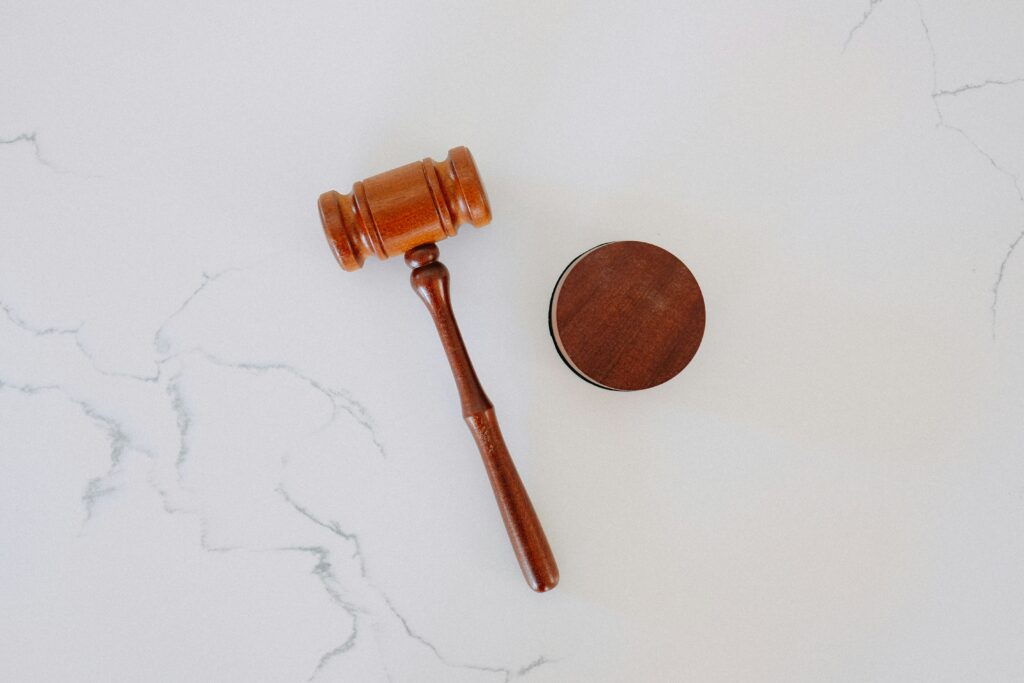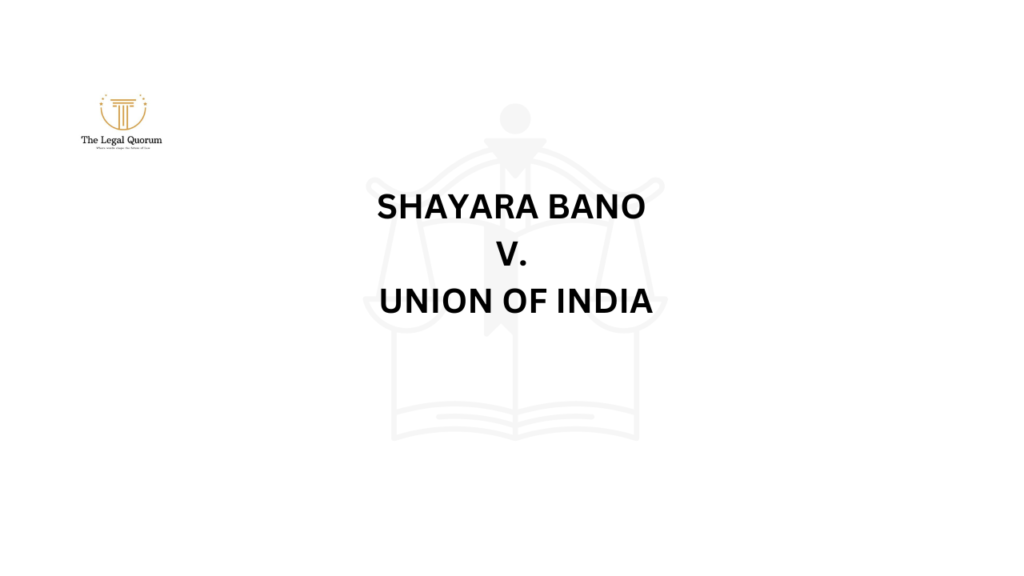Published on: 10th October 2025
Authored by: V. Dhamini
Dr. B. R. Ambedkar National Law University
Citation– 1976 (2) SCC 521, AIR 1976 SC 1207
Court– Supreme Court of India
Date– April 28, 1976
Bench– A. N. Ray, M. H. Beg, Y. V.Chandrachud, P. N.Bhagwati, H. N. Khanna.
Relevant Provisions– Article 21 of the Indian Constitution
Facts
On June 12, 1975, the Allahabad High Court, in the case of State of Uttar Pradesh v. Raj Narain[1], found Prime Minister Indira Gandhi guilty of engaging in corrupt electoral practices during the 1971 Lok Sabha elections. Justice Jagmohan Lal Sinha declared her election to be void, effectively disqualifying her from contesting elections or holding any elected office for a period of six years. Following this, Indira Gandhi approached the Supreme Court, which granted her a conditional stay on the High Court’s decision, allowing her to remain in office temporarily.
Subsequently, on June 26, 1975, the President of India, Fakhruddin Ali Ahmed, acting under Article 352(2) of the Constitution, proclaimed a National Emergency citing “internal disturbances” as the basis. The declaration of Emergency fundamentally altered the constitutional framework : fundamental rights were suspended, including the right to life and personal liberty[2].
During this period, the Maintenance of Internal Security Act[3] was widely invoked by the executive to detain a large number of opposition leaders, political dissenters, journalists, and civil rights activists without trial. The repressive use of preventive detention laws led to a wave of habeas corpus petitions being filed before various High Courts across the country. The central legal issue raised was whether a person detained under MISA during the Emergency could seek relief through a writ of habeas corpus.
One such significant petition was filed on behalf of Shivkant Shukla, a journalist detained under MISA. His legal counsel argued that his detention was unlawful and prayed for his release through a writ of habeas corpus.
Issues
- Whether the fundamental right to life and personal liberty under Article 21 of the Indian Constitution could be suspended during the Emergency period.
- Whether the judicial review of such detention orders was permissible.
Arguments
Petitioner’s Side
- During an emergency, the executive is granted broad discretionary powers over state affairs, prioritizing state interests above all else.
- It was argued that the state can continue to detain a person even if the advisory board finds no sufficient reason for detention, especially under emergency-related suspensions of Article 22 protections.
- The writ of Habeas Corpus is inapplicable when the right to move the court under Article 19 is suspended via a presidential order under Article 359(1).
- Suspension of the right to approach the court for enforcing rights under Article 21 is permitted by the Constitution and does not imply a breakdown of the Rule of Law.
- Articles 358, 359(1), and 359(1A), along with other emergency provisions, are constitutionally sanctioned and essential for safeguarding national military and economic security.
Respondent’s Side
- The primary argument was that Article 359(1) does not entirely restrict the legislature’s power, but permits law-making during an emergency, even if such laws violate fundamental rights mentioned in the Presidential order.
- Article 359(1) only bars individuals from approaching the Supreme Court under Article 32 for enforcing certain rights; it does not affect the High Courts’ powers under Article 226 to enforce common law or statutory rights related to personal liberty.
- The scope of the Presidential order is confined to fundamental rights and does not impact rights derived from natural law, common law, or statutory law.
- A proclamation of emergency under Article 352 does not expand the state executive’s authority beyond what is already defined in Article 162 of the Constitution.
- Article 21 is not the sole repository of right to life and personal liberty.
- The presidential order cannot affect non – fundamental constitutional rights arising under Arts. 256, 265, 361(3), natural rights, contractual rights and other statutory rights.
- The state and its officials can exercise the power of arrest only if the act in question meets all the conditions laid out in Section 3 of the MISA; otherwise, such detention exceeds the authority granted by the Act.
- It was finally contended that the Constitution’s Preamble upholds sovereignty, democracy, and a republican framework, implying that the executive, being subordinate to the legislature, must act within the limits of legislatively sanctioned laws and not infringe upon citizens’ rights.
Judgement
In the backdrop of the Presidential Proclamation of Emergency dated 26th June 1975, and the subsequent order issued under Article 359(1) on 27th June 1975, the Supreme Court, by a majority of 4:1, held as follows:
- Bar on Habeas Corpus Petitions During Emergency:
The Court ruled that no person whether a citizen or a foreign national had the locus standi to approach the High Court under Article 226 for issuance of a writ of habeas corpus, or any other relief, challenging preventive detention orders under the Maintenance of Internal Security Act, 1971 during the subsistence of the emergency and the suspension of Articles 14, 21, and 22.
Thus, even detentions alleged to be mala fide, procedurally illegal, or based on extraneous considerations could not be judicially reviewed during the emergency period. - Constitutional Validity of MISA Provisions:
The Court upheld the validity of clauses (8) and (9) of Section 16-A of the MISA, holding that they were constitutionally sustainable and did not affect the jurisdiction of High Courts under Article 226 in ordinary circumstances. However, this jurisdiction stood curtailed solely by virtue of the Presidential order under Article 359(1). - On Executive Action:
Justice Y.V. Chandrachud, concurring with the majority, emphasized that executive actions must always flow from lawful authority granted by parliamentary legislation, reinforcing the constitutional principle of legality even in times of emergency. - Judicial Review and Preventive Detention:
The majority opinion held that courts had no power to test the validity of detention orders under MISA, as Section 16-A(9) explicitly barred disclosure of grounds for detention, and the Presidential order suspended the enforcement of the very rights that would ordinarily enable such a challenge. - Distinction Between Articles 358 and 359:
The Court delineated the doctrinal distinction between Article 358 and Article 359:
- Article 358 automatically suspends the operation of Article 19 during an emergency caused by war or external aggression, allowing the State to legislate and act even if it violates Article 19.
- Article 359, by contrast, allows the President to suspend the right to enforce any Fundamental Right (except Articles 20 and 21 post-44th Amendment) by way of a specific order and may also stay proceedings pending before any court for enforcement of such rights.
- Furthermore, Article 358 provides indemnity for executive actions taken in good faith, whereas no such indemnity exists under Article 359.
- On the Basic Structure Doctrine:
The majority clarified that while the Basic Structure doctrine is essential to constitutional interpretation, it cannot be invoked to infer unstated or imaginary rights during emergencies that would conflict with express provisions of the Constitution, particularly in the context of suspended rights. - Rights under Article 21:
The Court controversially held that Article 21 is the sole repository of the right to life and personal liberty, and when enforcement of Article 21 is suspended under Article 359(1), no remedy is available, even if the detention is illegal, arbitrary, or without authority of law. - Scope of Judicial Review:
The judgment implicitly suggested that the scope of judicial review is not absolute and must remain consistent with constitutional limitations, especially during the operation of emergency provisions. The power of the court to entertain grievances is effectively suspended when enforcement of rights is barred by a Presidential order.
Dissent (Justice H.R. Khanna):
In a historic dissent, Justice H.R. Khanna upheld the principle that the rule of law and the right to life are inviolable, even during an emergency. He held that no authority in a democratic setup has the power to detain a person without any legal recourse, and that the suspension of the right to enforce Article 21 does not mean the extinguishment of the right itself.
Conclusion
ADM Jabalpur v. Shivkant Shukla remains one of the most significant and controversial cases in India’s legal history. It is a powerful reminder of what can happen when executive power goes unchecked and when the judiciary fails to stand up for the rights of individuals. The majority’s decision to uphold the suspension of fundamental rights during the Emergency has often been seen as a low point for the Indian judiciary.
Yet, in the midst of this, Justice H.R. Khanna’s lone dissent stood out as a courageous voice for justice and constitutional values. His belief that the right to life and liberty cannot be taken away even in times of crisis continues to inspire generations of lawyers, judges, and citizens.
Though the judgment itself was a setback, its legacy has had a lasting impact. It sparked important constitutional reforms, reignited public discourse on civil liberties, and ultimately strengthened the safeguards around fundamental rights. This case, despite its dark shadow, helped shape a more resilient democracy one more aware of the need to protect individual freedoms, even in the toughest of times.
[1] State of Uttar Pradesh v. Raj Narain, 1975 AIR 865(India).
[2] INDIA CONST. art. 21.
[3] Maintenance of Internal Security Act, No. 26 of 1971 (India).




